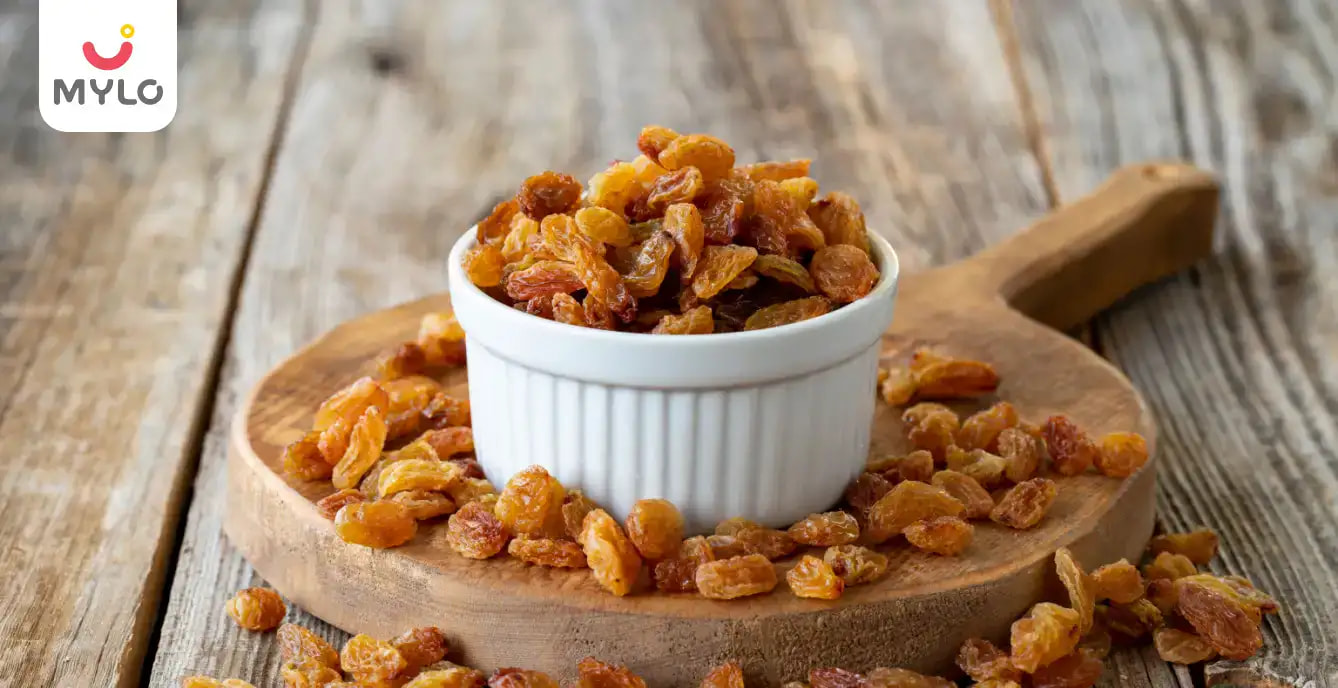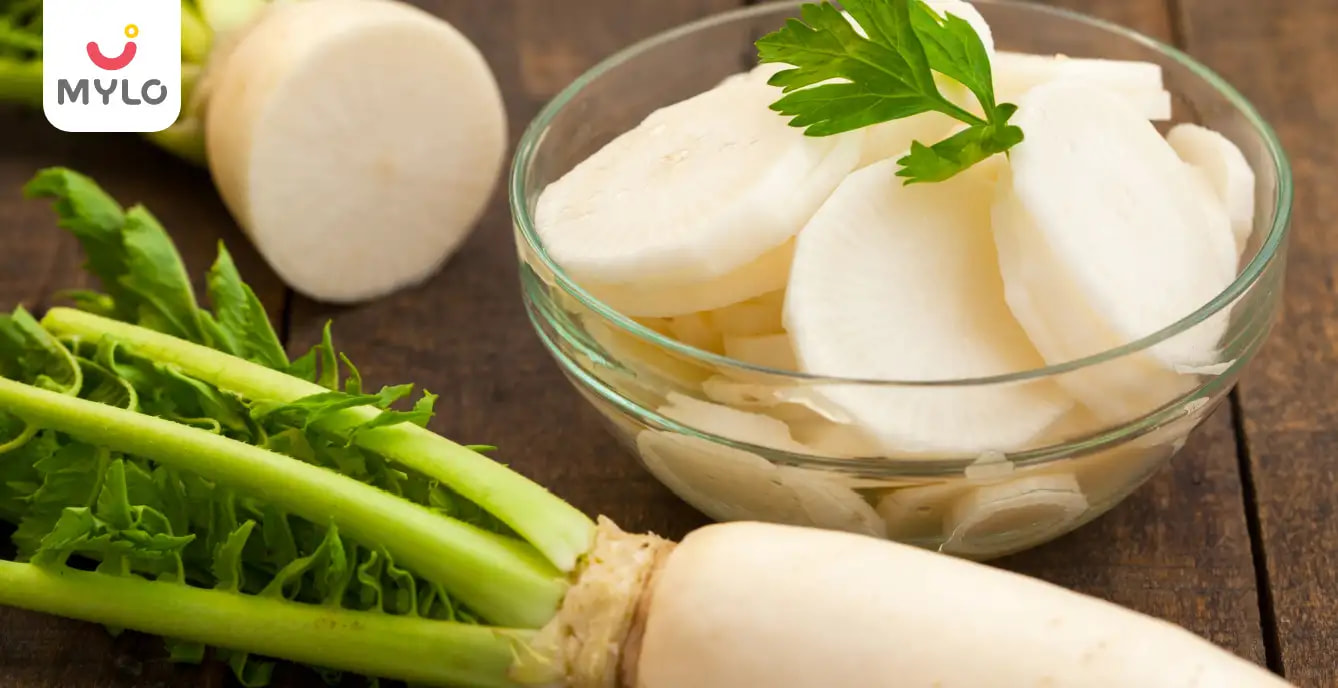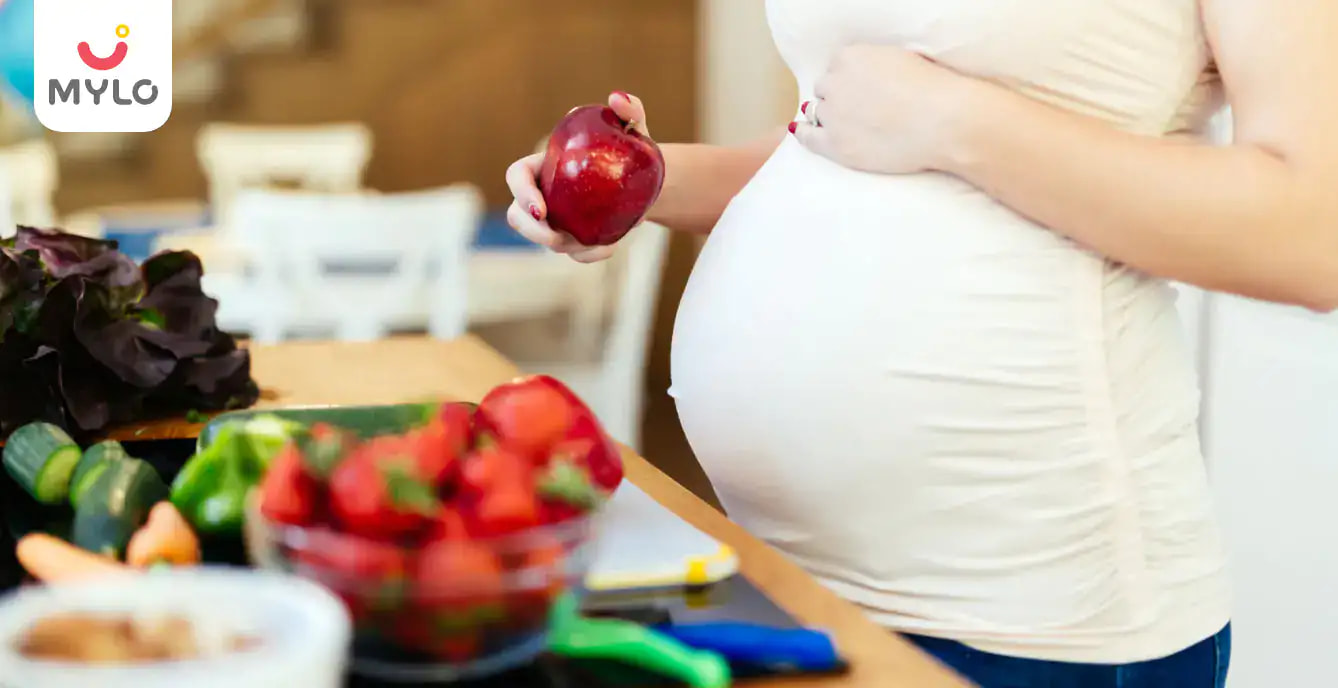Home

Raisins During Pregnancy: Benefits, Risks & Side Effects
In this Article

Raisins During Pregnancy: Benefits, Risks & Side Effects
Updated on 3 November 2023



Medically Reviewed by
Palak Mittal
clinical nutrition - M.Sc in Food & Nutrition| Post Graduation Diploma in Dietetics
View Profile

Pregnancy is a crucial period for both the mother and the developing fetus. As such, it is essential to maintain a healthy and balanced diet to ensure proper growth and development. One food item that often comes up for discussion during pregnancy is raisins. Raisins are nutrient-dense and are packed with vitamins and minerals that are beneficial for both the mother and the baby. However, like any other food, there are also risks and side effects associated with the consumption of raisins as they are rich in soluble fibre which may give laxative effect and can create digestive issues during pregnancy.
In this article, we will explore the potential benefits, risks, and side effects of consuming raisins during pregnancy, enabling you to make an informed decision about incorporating them into your diet.
Is it okay to eat raisins during pregnancy?
So, are raisins safe to eat during pregnancy? Yes, they are! Raisins are a healthy, natural food that offers many benefits for pregnant women. Be sure to include them in your pregnancy diet for optimum nutrition and to enjoy all their benefits. It is generally safe to consume raisins during pregnancy, but it is important to eat them in moderation. Eating too many raisins can lead to constipation or other gastrointestinal issues.
Raisins' nutritional content
Raisins are one of the most popular dried fruits around and they offer a range of health benefits, making them a great choice for pregnant women. A 100-gram serving of raisins contains 299-302 calories with 1% fat, 95% carbohydrates, and 4% protein. Raisins are high in sugar and dietary fiber, with 71.4-76.9 g of sugar and 5.8 g of dietary fiber per 100 g. They also contain vitamins and minerals such as calcium, iron, and potassium.
Raisins are a good source of iron, which is essential for the formation of hemoglobin in the blood. They are also rich in fiber, which can help prevent constipation. Additionally, raisins contain antioxidants and phenolic compounds, which may help protect against free radical cells and chronic diseases.
You may also like: What Is The Best Thing For Pregnant Women To Eat?
Benefits of eating kishmis (raisins) in pregnancy
Raisins are often thought of as a healthy snack, but did you know that they offer many benefits for pregnant women? Here are some of the top benefits of raisins during pregnancy:
1. Treats constipation
Raisins are high in fiber and contain essential vitamins and minerals, such as iron and potassium. Eating black raisins during pregnancy can help to regulate your digestion, preventing constipation and promoting regularity.
2. Provides antioxidants
Raisins are also a great source of antioxidants and phenolic compounds, which can help to protect your body against radical cells, chronic diseases and boost your immunity.
3. Improves blood cell count
Raisins are a good source of iron and vitamin C, which help to increase blood cell count and lower the risk of anemia during pregnancy.
4. Provides energy
It's common to experience fatigue during pregnancy. Raisins are a good source of energy, so they can help boost your energy levels and combat tiredness during pregnancy.
Risks of eating raisins during pregnancy
Women should be cautious when consuming dry grapes during pregnancy. Although raisins are generally safe to eat, there are some risks associated with eating them during pregnancy.
Pregnant women diagnosed with gestational diabetes should avoid raisins as excessive consumption can increase blood sugar levels and the risk of diabetes. Eating too many raisins can lead to weight gain and gestational diabetes. Raisins can also increase the risk of type 2 diabetes in the fetus.
Raisins also contain small amounts of pesticides and other chemicals. While the levels of these chemicals are considered safe for adults, they may be harmful to a developing fetus. Pregnant women should limit their intake of raisins to no more than 1/2 cup per day.
How long should pregnant women consume raisins?
It is generally recommended that pregnant women should not consume more than half a cup or a fistful of raisins and dried black grapes during pregnancy per day as it can lead to digestive issues and increased risk of gestational diabetes. Generally, raisins can be consumed all along the pregnancy as snacks however it is better to consult a doctor if the expecting mother is at risk of developing gestational diabetes.
Can pregnant women with gestational diabetes eat raisins?
Raisins are high in sugar content and hence can contribute to high blood sugar during pregnancy which is not an ideal condition. Hence it is always advised that pregnant women with a risk of gestational diabetes should consult with their doctor before consuming raisins in pregnancy.
You may also like: How to Lower Blood Sugar Levels During Pregnancy?
Are raisins & dry grapes safe to eat when pregnant?
Yes, consuming raisins and dry grapes during pregnancy is generally considered safe. They are a good source of calcium, antioxidants, and fiber. However, pregnant women at risk of developing gestational diabetes should limit eating raisins or kismis in pregnancy.
Who should stay away from raisins?
Eating black raisins during pregnancy can pose a few risks to the mother and child. For instance, raisins may contain harmful bacteria that can cause food poisoning. Additionally, pregnant women should not consume large quantities of raisins as they are high in sugar and may lead to gestational diabetes. Furthermore, eating too many black raisins during pregnancy can lead to digestive issues such as diarrhea and bloating. It is advised women should consult with their doctor before consuming raisins during pregnancy.
References
1. Olmo-Cunillera A, Escobar-Avello D, Pérez AJ, Marhuenda-Muñoz M, Lamuela-Raventós RM, Vallverdú-Queralt A. (2019). Is Eating Raisins Healthy? NCBI
2. Esfahani A, Lam J, Kendall CW. (2014). Acute effects of raisin consumption on glucose and insulin reponses in healthy individuals. J Nutr Sci





Medically Reviewed by
Palak Mittal
clinical nutrition - M.Sc in Food & Nutrition| Post Graduation Diploma in Dietetics
View Profile


Written by
Charu Pratap
Charu has been a seasoned corporate professional with over a decade of experience in Human Resource Management. She has managed the HR function for start-ups as well as established companies. But aside from her corporate career she was always fond of doing things with a creative streak. She enjoys gardening and writing and is an experienced content expert and linguist. Her own experiences with motherhood and raising a baby made her realize the importance of reliable and fact-based parenting information. She was engaged in creating content for publishing houses, research scholars, corporates as well as for her own blog.
Read MoreGet baby's diet chart, and growth tips

Related Articles
Related Questions
Hello frnds..still no pain...doctor said head fix nhi hua hai..bt vagina me pain hai aur back pain bhi... anyone having same issues??

Kon kon c chije aisi hai jo pregnancy mei gas acidity jalan karti hain... Koi btayega plz bcz mujhe aksar khane ke baad hi samagh aata hai ki is chij se gas acidity jalan ho gyi hai. Please share your knowledge

I am 13 week pregnancy. Anyone having Storione-xt tablet. It better to have morning or night ???

Hlo to be moms....i hv a query...in my 9.5 wk i feel body joint pain like in ankle, knee, wrist, shoulder, toes....pain intensity is high...i cnt sleep....what should i do pls help....cn i cosult my doc.

Influenza and boostrix injection kisiko laga hai kya 8 month pregnancy me and q lagta hai ye plz reply me

RECENTLY PUBLISHED ARTICLES
our most recent articles

Diet & Nutrition
গর্ভাবস্থায় আলুবোখরা: উপকারিতা ও ঝুঁকি | Prunes During Pregnancy: Benefits & Risks in Bengali

Diet & Nutrition
গর্ভাবস্থায় হিং | ঝুঁকি, সুবিধা এবং অন্যান্য চিকিৎসা | Hing During Pregnancy | Risks, Benefits & Other Treatments in Bengali

Women Specific Issues
স্তনের উপর সাদা দাগ: লক্ষণ, কারণ এবং চিকিৎসা | White Spots on Nipple: Causes, Symptoms, and Treatments in Bengali

Diet & Nutrition
গর্ভাবস্থায় পোহা: উপকারিতা, ধরণ এবং রেসিপি | Poha During Pregnancy: Benefits, Types & Recipes in Bengali

Diet & Nutrition
গর্ভাবস্থায় মাছ: উপকারিতা এবং ঝুঁকি | Fish In Pregnancy: Benefits and Risks in Bengali

Diet & Nutrition
গর্ভাবস্থায় রেড ওয়াইন: পার্শ্ব প্রতিক্রিয়া এবং নির্দেশিকা | Red Wine During Pregnancy: Side Effects & Guidelines in Bengali
- ইনার থাই চ্যাফিং: কারণ, উপসর্গ এবং চিকিৎসা | Inner Thigh Chafing: Causes, Symptoms & Treatment in Bengali
- গর্ভাবস্থায় ব্রাউন রাইস: উপকারিতা ও সতর্কতা | Brown Rice During Pregnancy: Benefits & Precautions in Bengali
- Velamentous Cord Insertion - Precautions, Results & Safety
- Unlock the Secret to Flawless Skin: 7 Must-Have Qualities in a Face Serum
- Unlock the Secret to Radiant Skin: How Vitamin C Serum Can Transform Your Complexion
- Gender No Bar: 10 Reasons Why Everyone Needs a Body Lotion
- Unlock the Secret to Radiant Skin How to Choose the Perfect Body Lotion for Your Skin Type
- Top 10 Reasons to Apply a Body Lotion After Every Bath
- Communication in Toddlers: Milestones & Activities
- How to Improve Vocabulary for Toddlers?
- A Comprehensive Guide to Understanding Placenta Accreta
- Vulvovaginitis in Toddlers Causes, Symptoms and Treatment
- A Comprehensive Guide to Understanding Cerebral Palsy in Children
- Bitter Taste in Mouth During Pregnancy: Understanding the Causes and Remedies


AWARDS AND RECOGNITION

Mylo wins Forbes D2C Disruptor award

Mylo wins The Economic Times Promising Brands 2022
AS SEEN IN

- Mylo Care: Effective and science-backed personal care and wellness solutions for a joyful you.
- Mylo Baby: Science-backed, gentle and effective personal care & hygiene range for your little one.
- Mylo Community: Trusted and empathetic community of 10mn+ parents and experts.
Product Categories
baby carrier | baby soap | baby wipes | stretch marks cream | baby cream | baby shampoo | baby massage oil | baby hair oil | stretch marks oil | baby body wash | baby powder | baby lotion | diaper rash cream | newborn diapers | teether | baby kajal | baby diapers | cloth diapers | laundry detergent 6472 | lactomama lactation granules |








